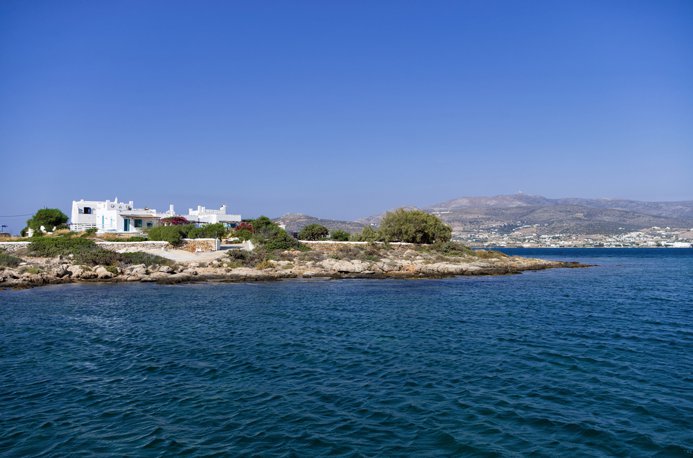Business in Athens: not a catastrophe, but an opportunity
 Greece returns business confidence. In February 2018, the international rating agency Moody’s raised the rating of the issuer of Greece from Caa2 to B3. The volume of foreign direct investment in Greece, according to the official Greece Agency Enterprise Greece, grew by 30% in 2017 compared to 2016 and reached 3.6 billion euros. Greece’s GDP has been growing for the fourth quarter in a row, and, according to forecasts of the European Commission, the Greek economy will continue to grow by 2.5% per annum in 2018 and 2019. The disposable income per capita, according to estimates of the European Central Bank (ECB), in 2017 increased for the first time in five years.
Greece returns business confidence. In February 2018, the international rating agency Moody’s raised the rating of the issuer of Greece from Caa2 to B3. The volume of foreign direct investment in Greece, according to the official Greece Agency Enterprise Greece, grew by 30% in 2017 compared to 2016 and reached 3.6 billion euros. Greece’s GDP has been growing for the fourth quarter in a row, and, according to forecasts of the European Commission, the Greek economy will continue to grow by 2.5% per annum in 2018 and 2019. The disposable income per capita, according to estimates of the European Central Bank (ECB), in 2017 increased for the first time in five years.
The three priority areas of business development in Greece are tourism, shipping of goods and clean technologies.
The three priority areas of business development in Greece are tourism, shipping of goods and clean technologies. Nick Karvounis / Unsplash
It is still difficult to determine how positive changes have affected small businesses: the latest data from the organization for the support of entrepreneurs Endeavor Greece only reflect on the state of affairs for 2016. At that time, 28.6 thousand new companies were registered in Greece (which is still two times less than before the crisis in 2008), and 35.2 thousand were closed. But an important trend can be seen: tourism has become the only sector where more companies opened in 2016 than in 2012 (+31%), and where the number of running startups exceeded the number of closed ones. In general, most of the recently opened enterprises in Greece are directly or indirectly related to tourists: 20% of new companies are restaurants, bars and catering, 11% are retail and 5% are directly in the tourism sector.
The choice of entrepreneurs is not surprising. In addition to the fact that the tourism sector is less dependent on the state of the still weak Greek economy than others, Greece is experiencing a tourist boom: according to the Bank of Greece, from 2012 to 2017 the number of foreign tourists increased from 17 to 30 million people, and in Athens, the number of international arrivals, according to the Association of Greek Tourist Enterprises (SETE), is from 2.5 million to 4.8 million over the same period.
Procedure
According to the World Bank Doing Business 2018 study, it would take 12.5 days to open a company in Greece. This is more than in many European countries: for example, in Italy it will take 6.5 days, in Cyprus – 6, in Portugal – 5. The requirements for authorized capital are symbolic: only 1 euro. The procedure itself includes four stages, the entrepreneur must:
get confirmation of the absence of tax debts in any tax office (online, free of charge);
apply for registration of a company in the General Electronic Commercial Register (GEMI) (about 200 euros);
make a seal (40 euros);
register with the Unified Social Security Institution (EFKA) (EUR 111).
Today, getting a loan in Greece is quite problematic: the country ranks first in Europe in terms of the number of problem loans. However, in May 2018, the four largest Greek banks successfully passed the ECB stress tests – this indicates the successful completion of the multi-year period of their restructuring and the gradual recovery of the Greek financial sector.
One of the difficulties entrepreneurs in Greece face is bureaucracy. For example, to resolve a commercial dispute in court in most countries of the Organization for Economic Development and Cooperation (OECD), according to estimates by the consulting company Boston Consulting Group (BCG), it will take 19 months, while in Greece it will take 53 months. the problem is high taxes: for example, the corporate income tax rate in Greece is 29%. For comparison: in Cyprus, the income tax of companies is only 12.5%, while dividend and interest income are exempt from tax. Rates in Portugal, Italy and Spain are also lower than in Greece: 21, 24 and 25%, respectively.
In April 2018, with the support of the Government of Greece and the European Investment Fund, the EquiFund fund for assistance to small and medium businesses in Greece was launched. According to BCG, the total investment in small business by 2022 will be 1 billion euros, of which 260 million have already been collected from various sources: the European Investment Background, the European Investment Bank, the institutions of Greece and the EU, and private investors.
According to BCG, from 2012 to 2016 the volume of investments in Greek start-ups increased 18 times: from 5 to 90 million euros
According to BCG, from 2012 to 2016 the volume of investments in Greek start-ups increased 18 times: from 5 to 90 million euros Milada Vigerova / Unsplash
Greek business incubators, such as Corallia, EGG, iQbility and Orange Grove, support startups at all stages of development, and venture capital funds, such as Marathon Venture Capital, NBG Business Seeds and Venture-Friends, help companies with initial financing.


